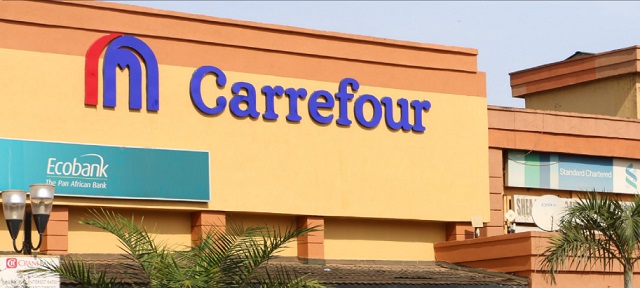French renowned retail chain Carrefour to open outlet in Kampala
3 min read
Competition among chain stores in Uganda is set to tighten with the coming of a new player, Carrefour from France.
Proprietors are planning to open two stores in Kampala soon, a move that is expected to cause some buzz in the less developed retail chain industry.
Ranked the world’s second-largest supermarket chain after Wal-Mart Stores, Carrefour will open its maiden outlets in Uganda at the Oasis Mall, located along Yusuf Lule Road, and another at Metroplex Mall in Naalya.
“Uganda will be Carrefour’s 16th market (country) world-wide and second in East Africa,” the retail chain said on its Facebook page.
The company started operations in East Africa with the entry into the Kenyan market in 2016. It operates seven stores to date and employs slightly more than 1,400 staff.
Uganda currently has Shoprite, Game, Quality and Mega Supermarkets as big players in the industry.
Aeko Ongodia, a renowned Chartered Finance Analyst and founder (Chief Executive Officer) of Xeno Technologies, an investment management company, told The Independent in an interview that the French based firm is likely to succeed once it capitalises on the growing economy that has an increasing number of the middle class.
He also said that the exit of two Kenyan supermarkets left a vacuum that new players and old ones can take advantage of and grow.
He said that Nakumatt and Uchumi failed partly because of mismanagement.
“The two retail chains had a poor supply chain management and they also lacked money,” he said.
The growing population is also expected to support the growth of retail chains according to experts.
Currently, Uganda’s population stands at more than 34million people while the economy has been growing at an average of 5.5%, according to the Uganda Bureau of Statistics (UBOS) data.
Similarly, Christy Tawii, a senior research analyst at Euromonitor International for Sub- Saharan Africa says the African continent has opportunities for retail chains wishing to expand into new frontier markets owing to a growing population, rapid urbanisation and fast growing consumer expenditure
“Retailing contributions to GDP across the region continue to increase, indicating that the region is consumption-driven,” she said.
Tawii, however, says although Africa is regarded as an emerging market, it is different and complex and that investors have to be cautious about it.
“The region is home to 55 independent states, which are characterized by diverse economies, and consumption patterns. It hosts a population of different income groups, religions, races, customs and languages. Furthermore, different countries are at different development stages,” she says.
She added that for an investor to develop a good and strategic market entry approach into the region, they need to understand the diversity and dynamics that drive retailing.
In addition, understanding how and where one’s product is consumed and purchased in the region is necessary for developing a route-to-market strategy.
She added that despite the proliferation of modern retail channels in Africa, traditional and informal retailing such as Dukas in Kenya or Spaza shops in South Africa dominates due to lack of infrastructure.
Carrefour in June this year reported higher first-half profits and said it was on track with a strategic overhaul aimed at boosting earnings and tackling competition from the likes of Amazon.
The retail chain’s operating profits rose 2.6% from the same period last year to 618 million euros ($690 million).
Carrefour had a 282 million euros improvement in cash-flow, while recurring operating profits at its competitive, key home French market rose by 6 million euros to 116 million.
The retail chain said it was sticking to the financial targets laid out in its ‘Carrefour 2022’ plan, which also includes expanding into convenience stores to cut its exposure to large hypermarket stores and having more organic products and private labels.
Those targets include a cost-reduction plan of 2.8 billion euros on an annual basis by 2020, having 5 billion euros worth of e-commerce food sales, and the disposal of 500 million euros worth of non-strategic property assets.
Early this year, Carrefour agreed to sell 80% of its Chinese operations to electronics retailer Suning.com for 620 million euros, and recently agreed to sell its stake in logistics property group Cargo.
However, Carrefour has sealed a purchasing alliance with Britain’s Tesco and it has teamed up with Spanish start-up Glovo to provide a fast home delivery service in France, Spain, Italy and Argentina.





